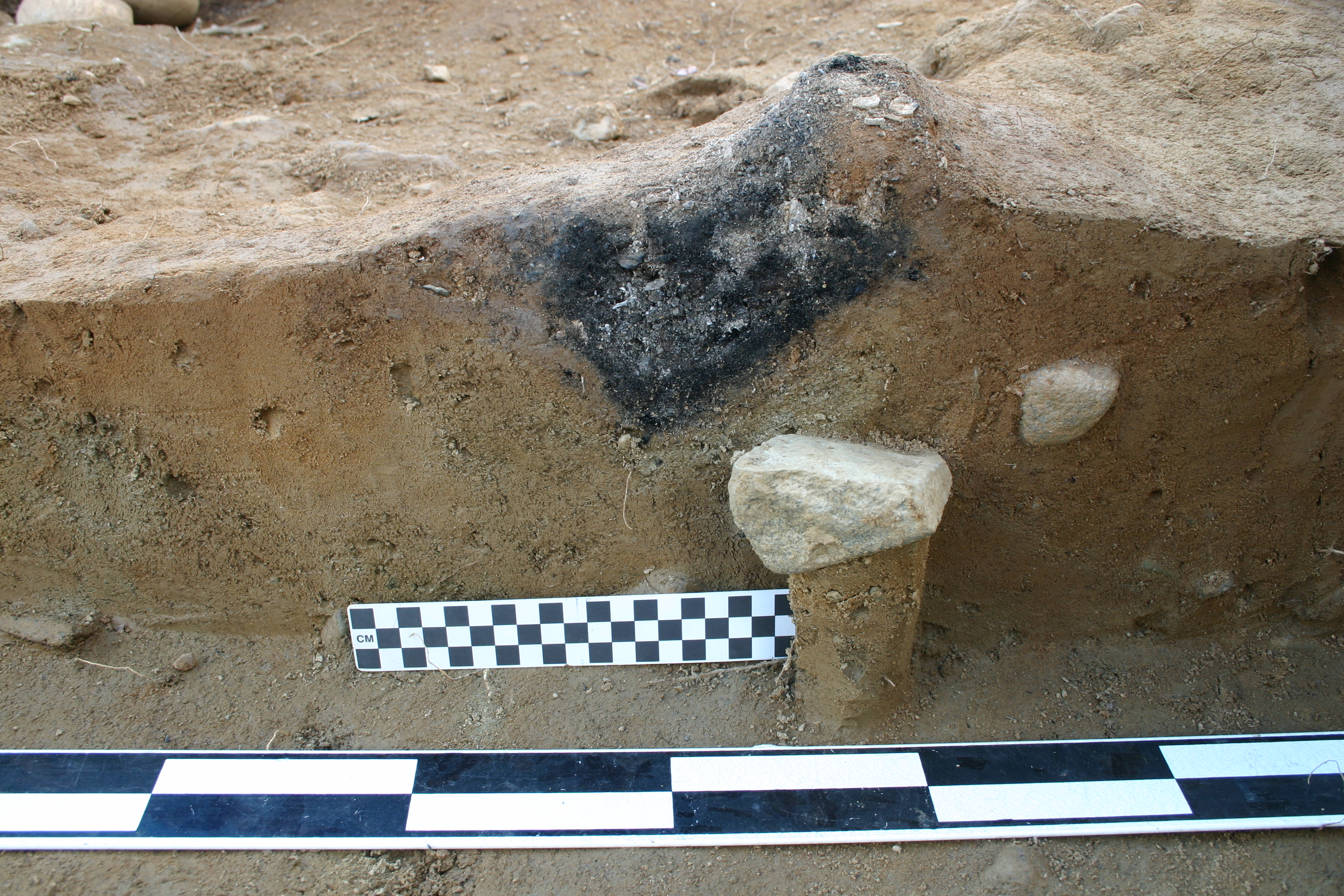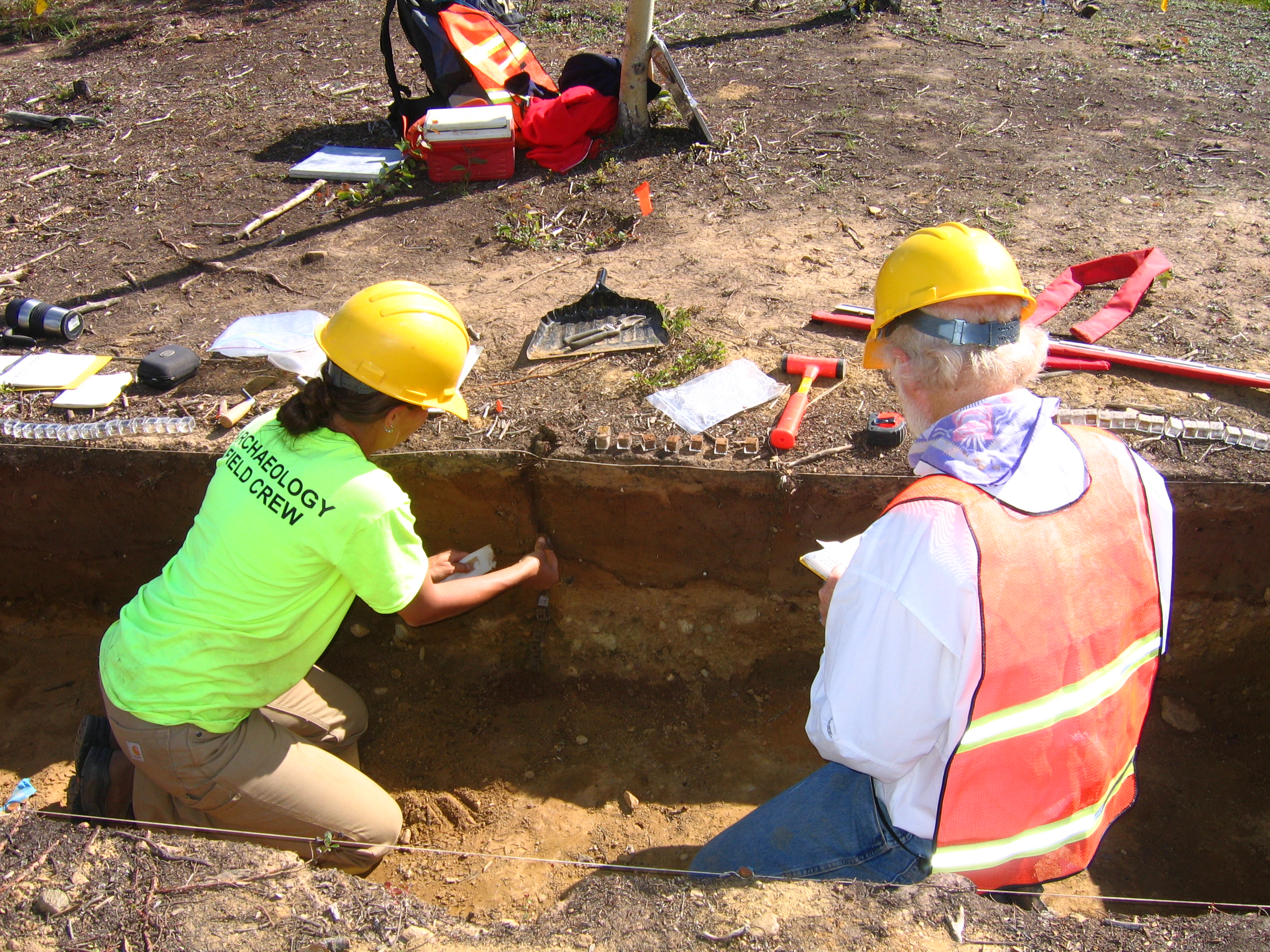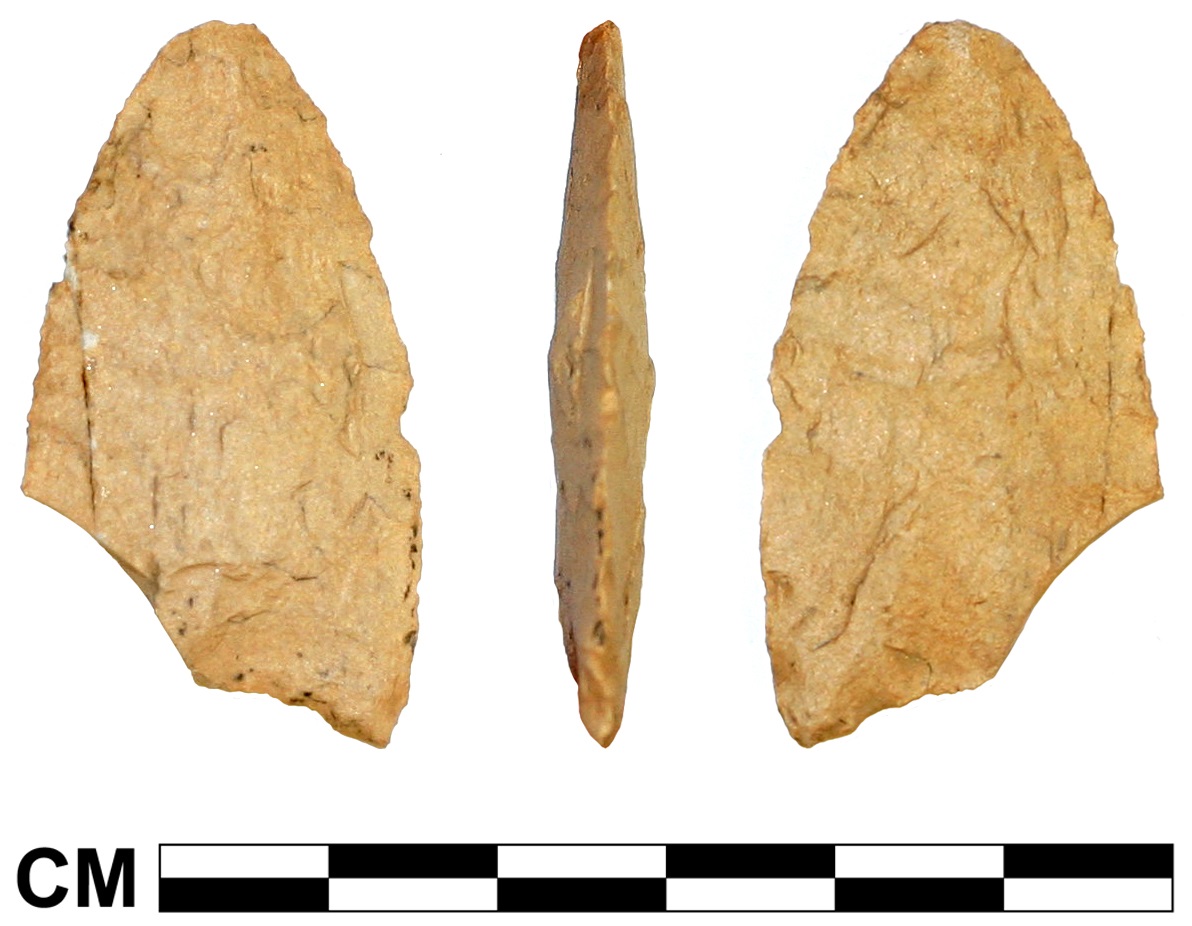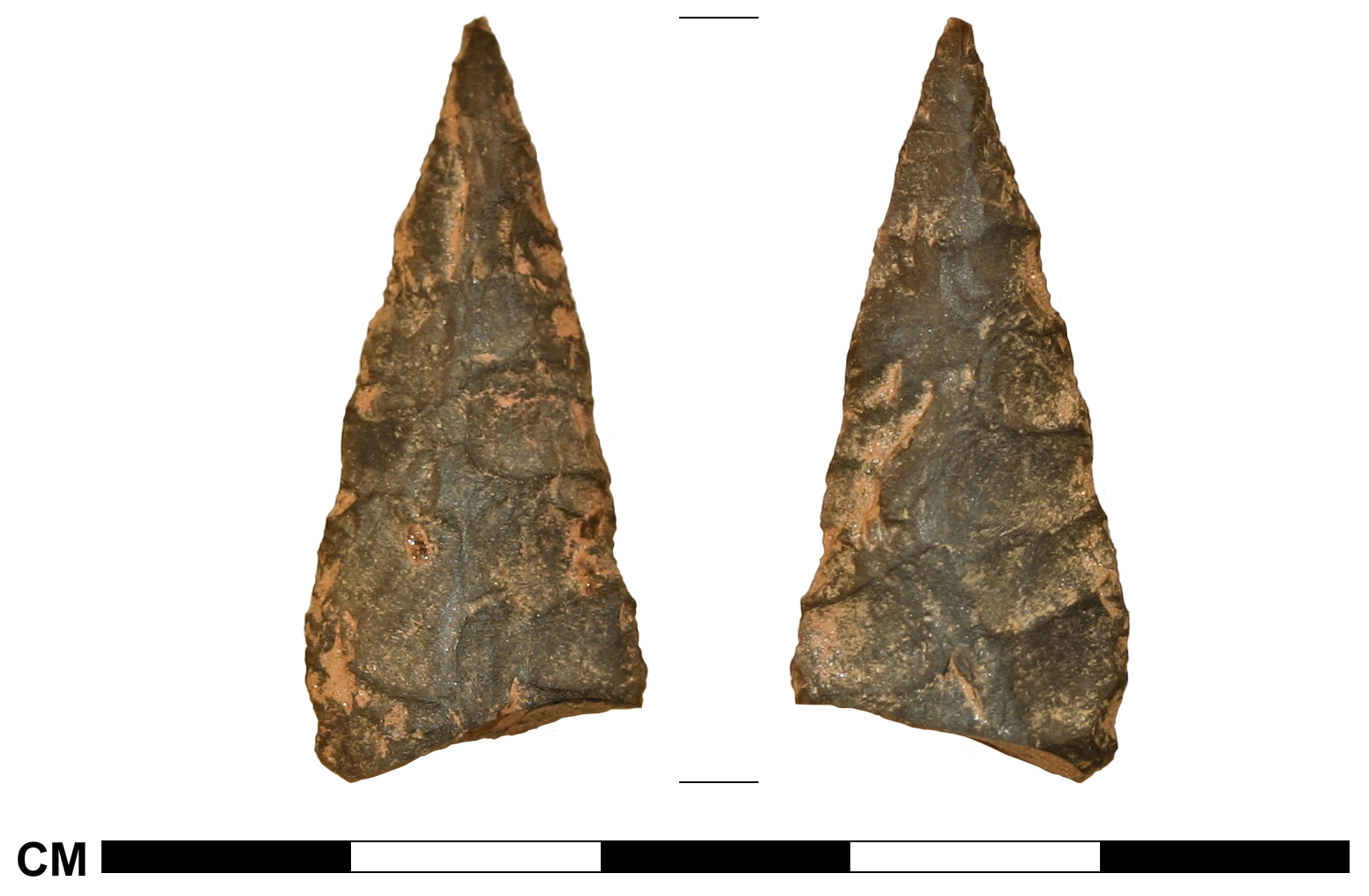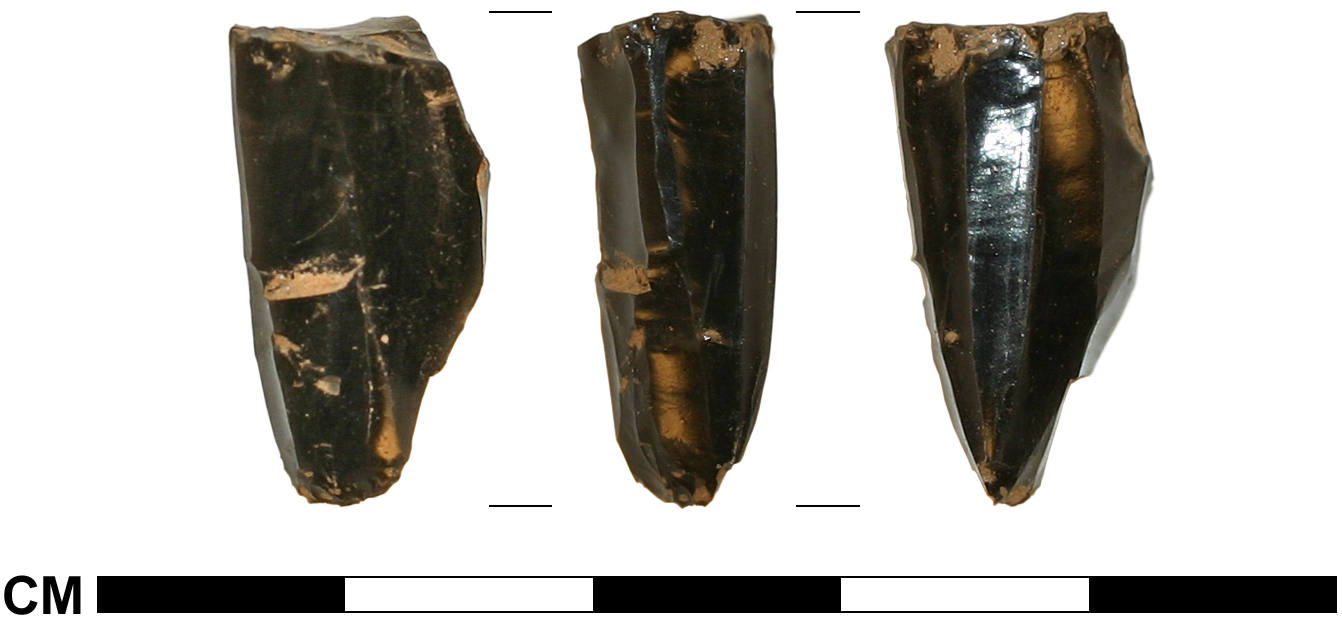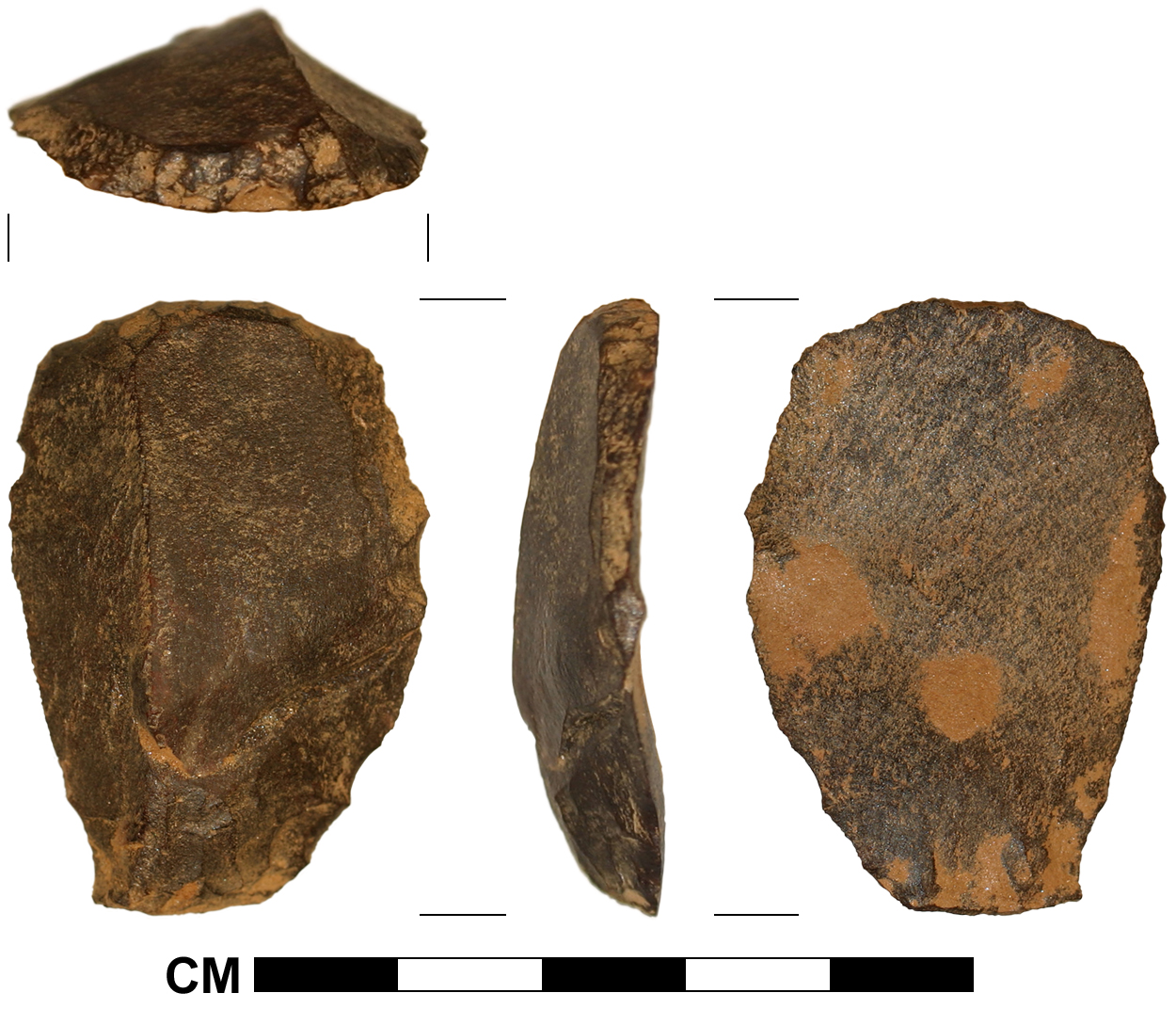| Banjo Lake Site
The Banjo Lake Site is located in the Donnelly Training Area near Delta Junction. It is situated on a hill of gravels left behind by ancient glaciers, which carved a corridor people used to traverse the landscape. There were over 12,000 artifacts found at this site over several years of excavation. Thousands of stone tool fragments and tiny pieces of animal bone were found near an ancient fireplace. Charcoal that was uncovered in the hearth can be dated to within 50 years of when it was burned using a method called radiocarbon dating. The site has been dated to 6,650 years old! The site was used as a seasonal campsite, and people who lived there spent their time creating and resharpening stone tools. Analysis of these tools tells us they were used as hunting weapons and food-processing instruments. Looking at the types of stone used in these tools, we can see that stone was brought into the site from a distant source 1,000 km away. This indicates these people traveled a great deal or even traded materials with other groups of people.
Click on an image below to view a larger version.




